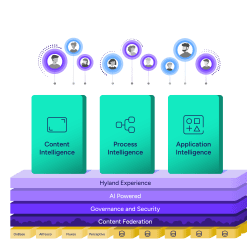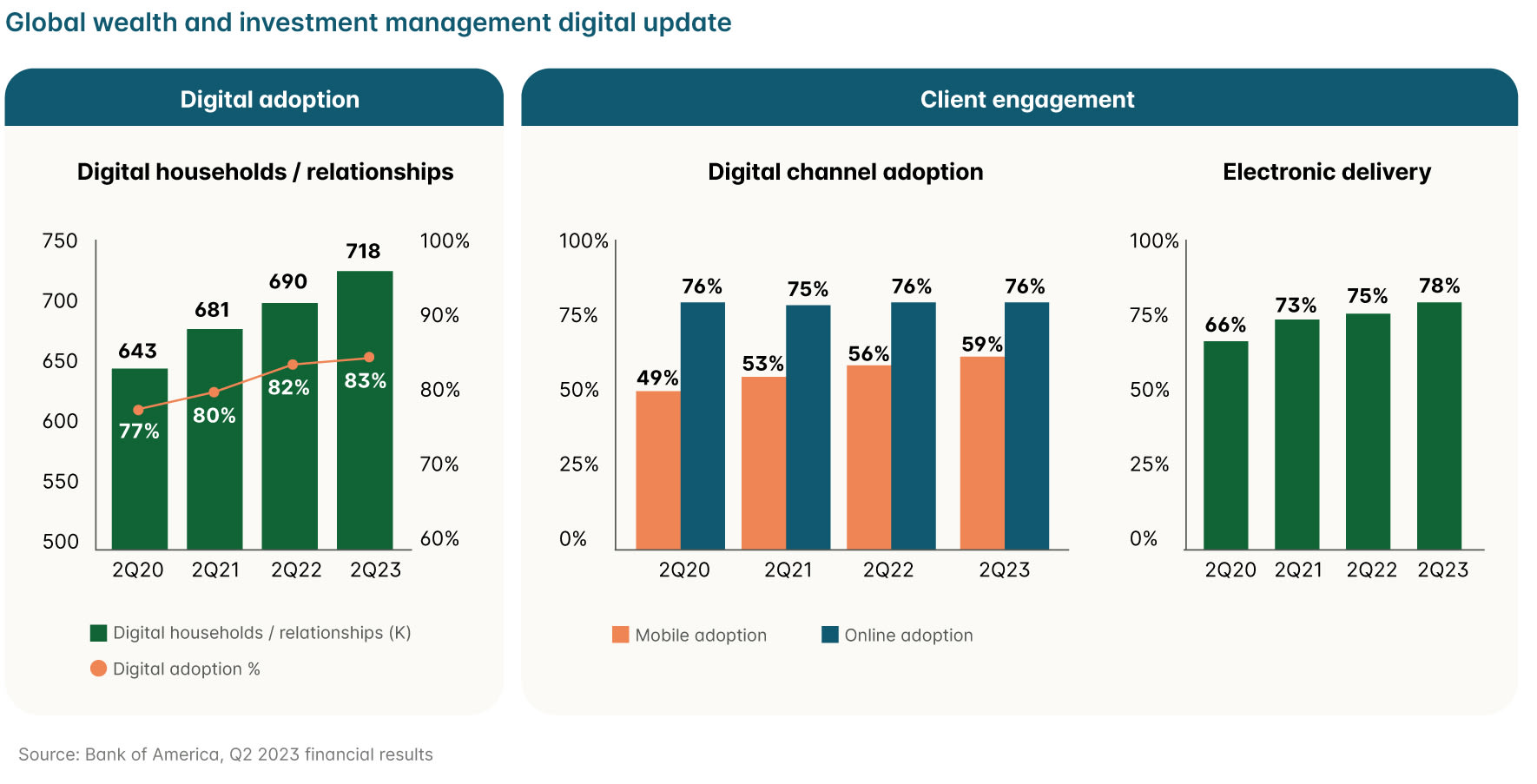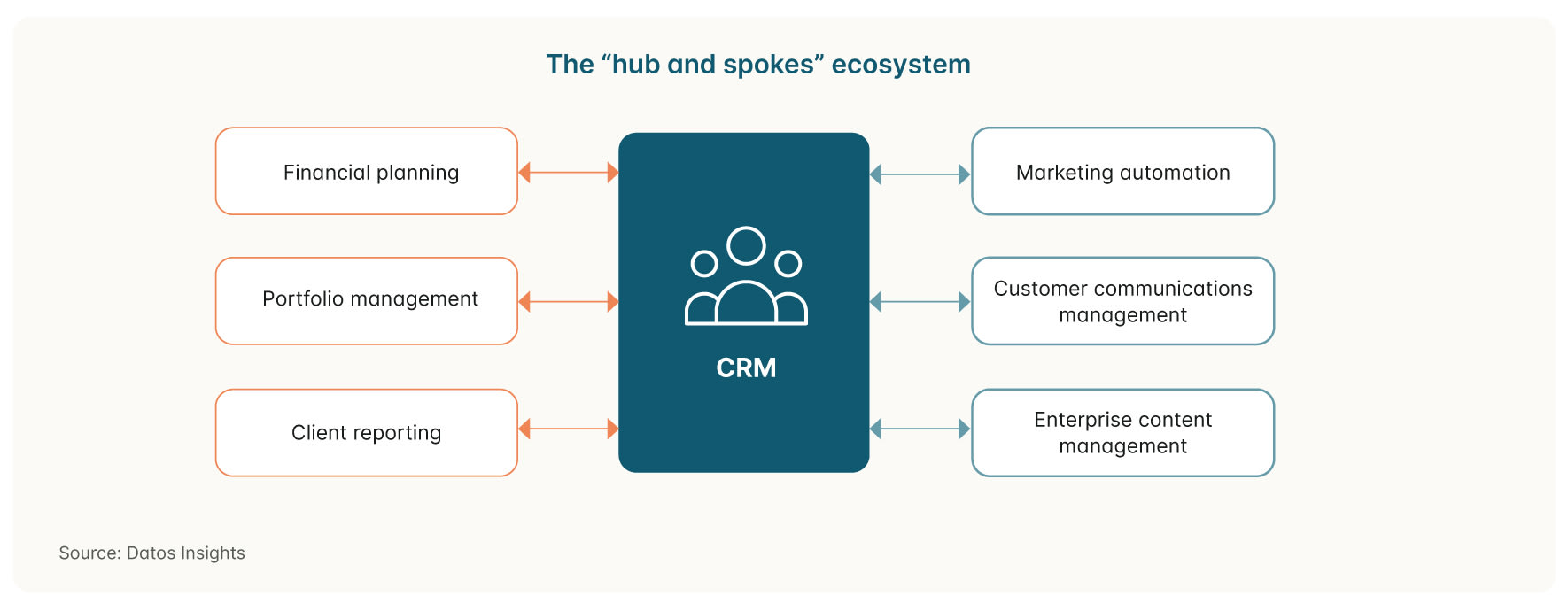Driving outstanding advisor-client engagement in wealth management
Leading firms are focusing on creating seamless experiences for investors and the advisors who serve them.

Harness the power of a unified content, process and application intelligence platform to unlock the value of enterprise content.
Learn more
Explore Hyland’s solutions by industry, department or the service you need.
Overview of solutionsIt's your unique digital evolution … but you don't have to face it alone. We understand the landscape of your industry and the unique needs of the people you serve.
 Overview of industries
Overview of industries
Countless teams and departments have transformed the way they work in accounting, HR, legal and more with Hyland solutions.
 Overview of departments
Overview of departments
We are committed to helping you maximize your technology investment so you can best serve your customers.
 Overview of services
Overview of services

Discover why Hyland is trusted by thousands of organizations worldwide.
Hear from our customers
Our exclusive partner programs combine our strengths with yours to create better experiences through content services.
Overview of partners
Find resources to power your organization's digital transformation.
Browse the resource center
Hyland connects your content and systems so you can forge stronger connections with the people who matter most.
Learn about HylandWith our modern, open and cloud-native platforms, you can build strong connections and keep evolving.
 Dig deeper
Dig deeper
Wealth management has entered a new phase of digitalization. What one might call “digital 1.0” was all about blocking and tackling: getting data management in order, creating baseline analytics, experimenting with machine learning, upgrading core systems and overhauling front-end experiences.
Firms have reached a digital baseline. Most have implemented customer relationship management (CRM) systems, modern financial planning and portfolio management solutions, digital marketing and basic business intelligence tools, and often have basic digital onboarding flows.
Individual investors — even from older demographics — are also more comfortable doing business digitally than in the past. Accelerated by the pandemic, the adoption of online and mobile features such as engagement with digital channels, e-delivery, chatbots, mobile check deposit and person-to-person payments are table stakes. This was demonstrated by wealth management customers at Merrill Lynch, one of the top five largest U.S. wealth management firms by assets under management (see the chart below).
The industry has now shifted focus to connecting the dots. Wealth managers have most of the pieces assembled; the challenge is to connect and synthesize them to create an experience greater than the sum of its parts.
Most firms now focus on two critical activities: integrating systems using APIs and orchestrating disparate forms, workflows and systems to create automated, seamless experiences for investors and the advisors who serve them. Only then can wealth managers truly glean maximum benefit from digitization.
Wealth managers further along on the journey are creating what might be termed a “hub and spokes” ecosystem. The CRM has become the eponymous hub, centralizing information on client demographics, inbound/outbound communications, financial holdings (including non-investment assets, such as banking or insurance) and, increasingly, AI-driven nudges, to suggest what the next best touchpoint might be for a given client.
This centrality, however, can only be actualized through savvy integration of companion solutions (e.g., financial planning, portfolio management, digital marketing platforms) and orchestration through workflow and content management solutions (i.e., the spokes).
Wealth managers are further along on their integration journeys than executing orchestration. Datos Insights has observed firms of all shapes and sizes constructing integrated advisor workstations housing all of an advisor’s day-to-day needs. This isn’t limited to the largest, most technically staffed firms. Wealth managers across different segments and sizes are rapidly catching up through integration-centric approaches.
RBC Wealth Management, for example, constructed a client portal and onboarding platform leveraging Salesforce as a white-labeled front end and piping in data from other solutions (e.g., financial planning) as necessary. Atria Wealth, a midsize independent broker-dealer, created an advisor workstation that centralizes the entirety of an advisor’s practice in one ecosystem. The platform is essentially an engine processing data from hundreds of vendors.
Wealth managers, understandably, have made more advances integrating platforms than orchestrating experiences. Connecting systems via API ― with the support of vendors and system integrators ― is a more straightforward proposition than creating wholly new experiences.
Moreover, some of the solutions required to do so, such as customer communications management and enterprise content management systems, aren’t yet table stakes for wealth management ecosystems. Yet, the power of digitizing collateral and communications can unlock value for wealth managers by creating more data to power personalized engagement.
Take forms, for example. They aren’t necessarily just a regulatory requirement to open an account; they’re also a great way to capture actionable intelligence on clients and prospects.
Leading-edge wealth managers aren’t limiting themselves to digitizing paper. They also parametrize the data elements within to flexibly and holistically create a fuller picture of their clients.
This concept applies to marketing, too. Investors are conditioned by their experiences with e-commerce pioneers such as Amazon and Netflix. They expect to be catered to as a segment of one. Moreover, wealth managers face a unique burden in the degree of regulatory scrutiny over bread-and-butter marketing. Collateral must also be parametrized to balance personalization with scale and compliance.
Wealth management is going through a period of rapid evolution around client engagement. Best-of-breed wealth managers are enabling their advisors with digital engagement solutions that allow them to provide clients with holistic approaches to a client’s total financial wellness — more than just investments, they encompass cash, credit and risk solutions.
These solutions are fed by ongoing data capture through dynamic forms, data feeds and process-orchestrated data capture through advisor and client interfaces. API integration and a “hub and spokes” model with orchestration overlaying them make this process seamless for the advisor and the end client. This enables the institution to promptly direct data to the appropriate advisor tools, driving optimal engagement and client experience.

David Himmel is a Senior Associate at Datos Insights. In addition to broad support for the Wealth Management practice, he produces the team’s regular market sizing and benchmarking reports, and covers how channels within wealth management are evolving and converging. David brings prior experience in research and consulting to Datos Insights, primarily at the intersection of financial services and technology, and earned a bachelor's degree in political science from Lesley University.

Andrew Besheer is the Practice Director for Wealth Management at Datos Insights, collaborating with the Advisors of the Wealth Management practice to grow the business and deliver exceptional insights and services to clients. Andy has a passion for helping clients define go-to-market strategies for wealth management and wealthtech, as well as digital transformation, operational efficiency and process management.

